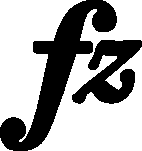



Articulation, Accents, Hairpins
|
b. 82-84
|
composition: (Op. 4), Sonata in C minor, Mvt I
..
It is unclear how the 4 category imprint: Graphic ambiguousness; Differences between sources issues: Long accents , GE revisions |
||||||
|
b. 82
|
composition: (Op. 4), Sonata in C minor, Mvt I
..
The missing wedge in GE (→FE,EE,IE) must be an oversight by the engraver of GE, caused by the proximity of this mark to category imprint: Differences between sources issues: Errors in GE |
||||||
|
b. 84-85
|
composition: (Op. 4), Sonata in C minor, Mvt I
..
The missing staccato mark in A seems to be Chopin's inadvertence, as he overlooked the first chord, separated from the remaining ones by the treble clef and positioned much higher than the following ones. In the main text we include the addition introduced already by GE (→FE,EE,IE). category imprint: Graphic ambiguousness; Differences between sources; Editorial revisions issues: GE revisions , Wedges , Inaccuracies in A |
||||||
|
b. 102
|
composition: (Op. 4), Sonata in C minor, Mvt I
..
The staccato dots probably represent the initial version of articulation of these crotchets, which Chopin replaced with slurs. It is indicated by the A notation in bar 104, in which the dots over the 2nd and 3rd crotchet were overwritten with a slur (leaving the dot over the 4th crotchet must be considered an oversight in this situation). In the discussed bar all 3 dots present along with slurs remained unremoved, hence in the main text we provide them in a variant form (in brackets). Being convinced of our hypothesis, one can choose the version of the editions, devoid of these dots. category imprint: Graphic ambiguousness; Differences between sources; Editorial revisions issues: Partial corrections |
||||||
|
b. 108
|
composition: (Op. 4), Sonata in C minor, Mvt I
..
The doubled, moved and prolonged category imprint: Differences between sources issues: Scope of dynamic hairpins , GE revisions |

 in
in 
 .
.